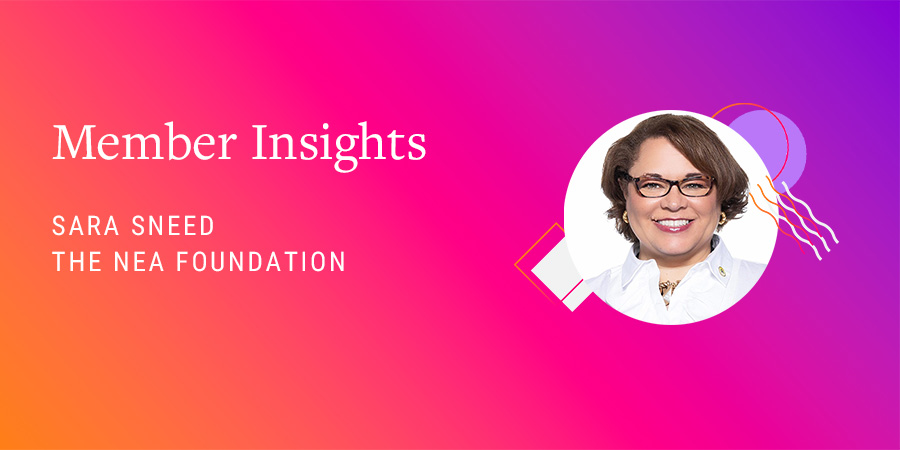TNTP partnered with four diverse school districts—Richland Parish, Louisiana; Hamilton County, Tennessee; Hartford, Connecticut; and Collier County, Florida—as they prioritized authentic community engagement.
Resources
Knowledge begins here
but never ends.
Curated reports, deep research, informational articles, podcasts. Everything you need to stay well
informed in the world of education grantmaking.
Member Insights: Investing in the Deep South

"If you’ve never been on a bus filled with education grantmakers from across the country... let me be the first to tell you: it’s an experience you won’t soon forget." Sara Sneed, president and CEO of The NEA Foundation, shares a journey through history, community and possibility in the Deep South.
What’s It Like to Lead Grantmakers for Education in Tumultuous Times?
Celebrating 30 Years of Grantmakers for Education
.
FILTER RESOURCES
SEARCH RESOURCES
Accurate Student Poverty Data Is Crucial to Supporting All Students
Rising Together: How Four Districts are Building Community During the COVID-19 Pandemic
Learning During COVID-19: Initial Findings and 4 Considerations for Policymakers
The COVID-19 pandemic has disrupted traditional forms of education and continues to create challenges for school systems and the students they serve. Education leaders and teachers have the unenviable responsibility of making difficult decisions well into the 2020-21 school year and beyond.
Glossary of K-12 Education Funding
This Policy Outline defines key K-12 education funding terms and outlines the various ways that states distribute financial support to K-12 school districts.
The Effects of Expanding Pell Grant Eligibility for Short Occupational Training Programs: Results from the Experimental Sites Initiative
Each year, federal Pell Grants help millions of low-income students pay for postsecondary education. Expanding Pell Grant eligibility to encourage more short-term occupational training improved postsecondary enrollment and completion for low-income students, according to this study authored by Mathematica and Social Policy Research Associates for the Institute of Education Sciences. The findings are based on a study of two experimental expansions to Pell Grant eligibility piloted between 2012 and 2017 to help displaced workers in the recovery from the Great Recession.
Fault Lines in Borrowing: Academic Outcomes of Students in Default
This paper examines factors influencing and influenced by loan defaults among students at Valencia College in Orlando, Florida. The findings demonstrate that loan defaults and their harsh penalties are strongly associated with poorer academic persistence and completion.
The paper offers recommended changes to the student debt system to alleviate unnecessary hardships currently placed on student borrowers.
Submit A Resource
Expand your audience by expanding minds.
We believe in getting research and insights into more hands to support learning for our peers and community. Share your resources that would be useful to education grantmakers.






